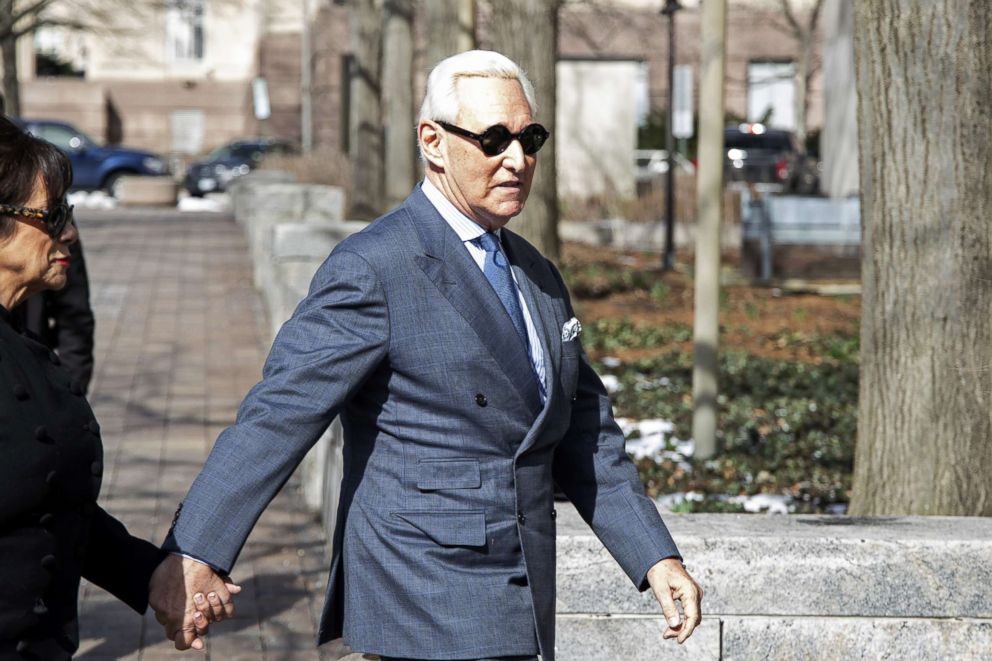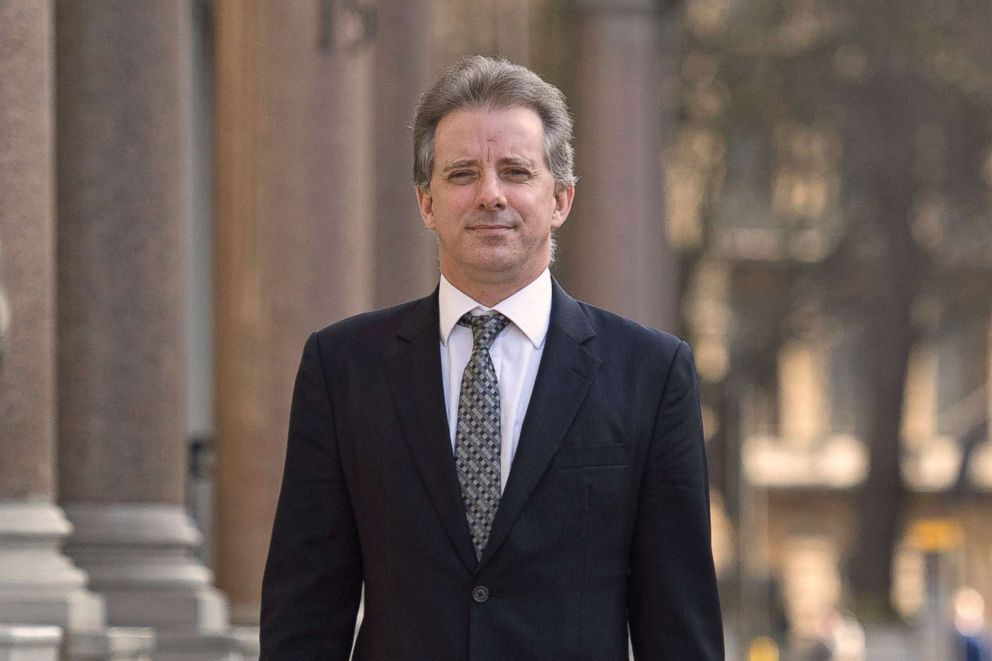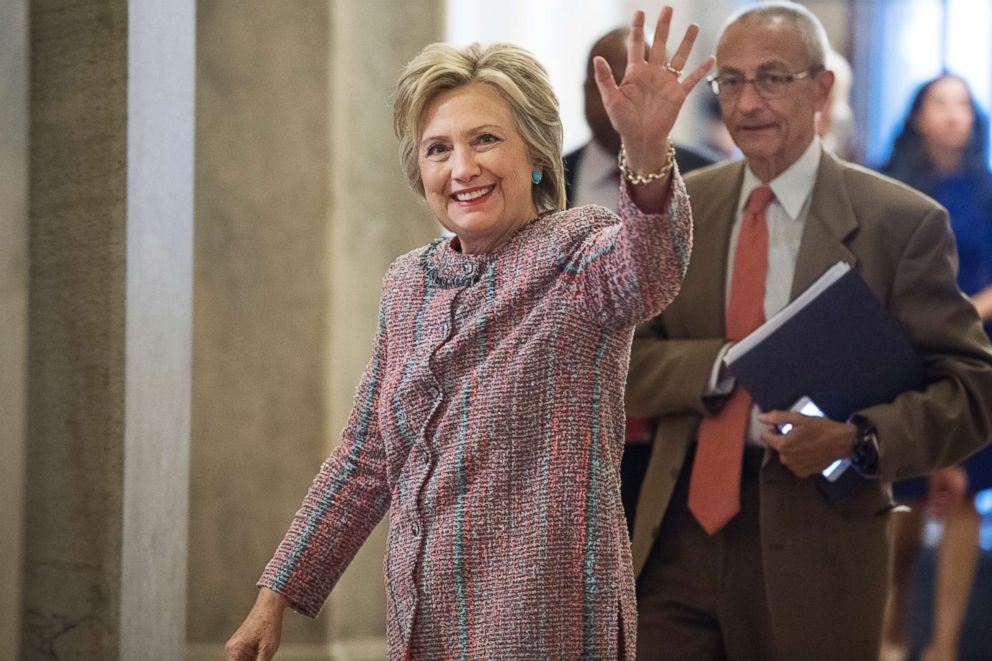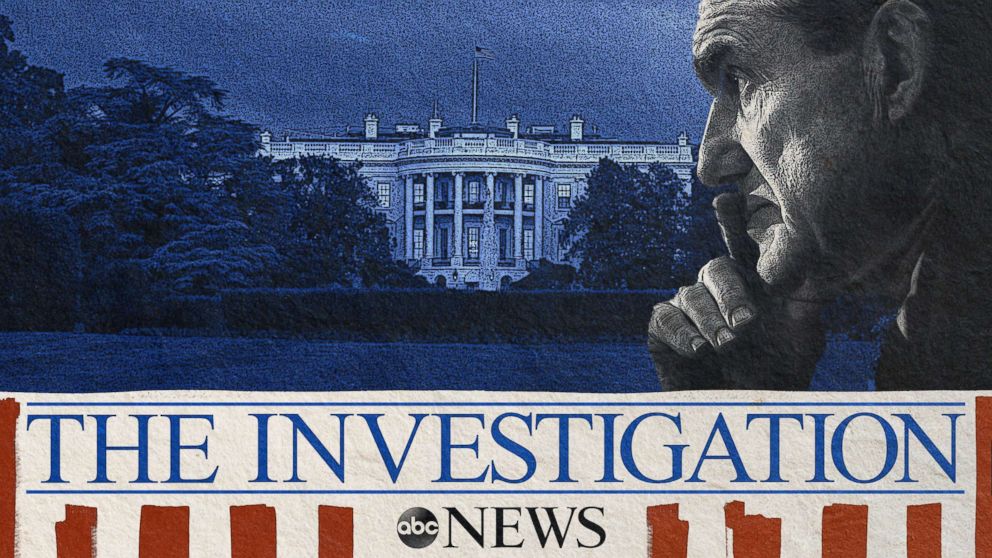Hillary Clinton's ex-campaign chairman, victim of 2016 campaign hack, thinks cell door will shut on Roger Stone
John Podesta still believes Stone played a role in releasing his hacked emails.
Hillary Clinton’s former campaign chairman John Podesta still harbors strong emotions about Roger Stone, the Republican dirty-trickster he believes played a role in releasing his hacked personal emails to try and gain an edge in the final month of the 2016 presidential contest.
“I think Roger Stone's on his way to prison, quite frankly,” Podesta told ABC News -- as Stone awaits trial on allegations he lied about his indirect communications with WikiLeaks, the organization that blasted his hacked emails into cyberspace.
“I think at the end of the day, he can strut and he can do his Nixon impressions," Podesta concluded. "But, maybe when the cell door clanks, he'll feel a little bit more remorse.”
Podesta, 70, a veteran Democratic operative who served as a counselor and advisor to Presidents Bill Clinton and Barack Obama, spoke candidly about the 2016 hack, the allegations of Russian interference, and the ensuing probe, during a rare, in-depth interview for the latest episode of "The Investigation," an ABC News podcast focused on the probe led by special counsel Robert Mueller.

Podesta said that he wants to see Mueller’s report made public so Americans can make up their own minds about Trump’s fitness for office. He was interviewed by Mueller's team as part of the probe, an experience he said gave him faith in what he described as the careful and thorough work being done by the special counsel’s team.
“I know that when I was interviewed, they didn't put their thumb on the scale one way or the other,” he recalled. “They asked me factual questions and I gave them -- to the best of my knowledge -- answers to those questions. So I couldn't tell which way they were going.”
He said he does not believe that the Russian efforts alone cost Clinton the election.

“I think when you lose by those few votes and those three states, everything counts,” he said. “If I had to put my finger on one thing that I think really turned the election right at the end, it was really more [then-FBI Director] Jim Comey's statements -- that he had reopened the e-mail investigation” into Hillary Clinton’s use of a private server – a Justice Department decision to reverse course that came in the final days before the election.
I think Roger Stone's on his way to prison, quite frankly.
“That's when we really saw the race tighten again,” he explained.
For months, the Clinton team harbored deepening suspicions about Russia’s interest in the 2016 contest and concerns about then-candidate Donald Trump’s unusually warm posture towards the Kremlin grew increasingly – concerns which grew more acute as the campaign wore on, Podesta said.
“It got so bad that Secretary Clinton gave a speech during the campaign about Trump's, essentially, sycophancy for Putin and for Russia and talking about how dangerous that was,” he said.
But Podesta said he played no role in the decision -- made by the campaign’s attorney -- to hire Fusion GPS, the research and investigative firm that had already begun digging into Trump’s Russia ties for a conservative news publication.
The firm hired former British spy Christopher Steele to make inquiries about Trump’s dealings in Russia and ultimately produced a series of memos – known widely as “the dossier” -- that laid out the raw, uncorroborated intelligence he had gathered.

“This occurred without the direct knowledge of the campaign but through our campaign counsel,” Podesta said. “Mr. Steele was a professional, someone that the F.B.I. in other cases relied on. He had come out of British intelligence and was viewed as having good contacts.”
Podesta rejected criticism that has been leveled by Republicans on Capitol Hill which equated the Clinton campaign’s use of information gathered by a foreign intelligence operative to the decisions by the Trump campaign to discuss research against Clinton with Russian nationals.
“I don't think it's the same as soliciting information from the Russian government, which was committing crimes to obtain that information,” Podesta said. “We forget sometimes that those hacks were themselves crimes -- and that I found myself on the receiving end of that.”
Podesta said that the effort to dig into the Republican nominee’s Russia ties was informed by Trump’s own conduct, including his refusal to release copies of his tax returns and the “opaque nature of his business empire.”
“Going after and trying to peel the onion on what he was up to and what contacts he had and who he was engaged with was, I think, perfectly appropriate,” Podesta said.
The best support for that decisions, he said, has emerged in the campaign’s aftermath, as the role of the Russians during the 2016 campaign has come into clearer focus.
Podesta said he believes the Russian meddling was coaxed on by Trump’s close allies, including Stone. Podesta said he remains convinced that Stone knew in advance about the hack of his personal email account – an allegation that Stone has forcefully denied.
“He claims he didn't. I think there's every indication that he probably did,” Podesta said. “But I think that's a question that will get settled in the course of a trial.”

Despite all that has surfaced since Trump’s election about the extensive Russian efforts to affect the presidential race, Podesta said he believes there were strong enough signs of trouble during the campaign that key intelligence officials inside Obama Administration should have acted more swiftly to go public with their concerns.
Obviously, [then-CIA Director
“It was extremely frustrating to us,” he said. “I think that it showed.”
Podesta acknowledged the challenges confronting intelligence officials who had to decide what they could divulge about information they were gathering through classified channels, but he said he believes in hindsight that those decisions carried consequences for Democrats.
“Obviously, [then-CIA Director] John Brennan, [former Director of National Intelligence] Jim Clapper, [and former FBI Director] Jim Comey knew more than they were saying,” he said. “This is a grudge I bear.”
Podesta said that Hillary Clinton has moved on from the defeat, but still keeps an eye on the investigation. Podesta said he did not care to offer predictions about the outcome of Mueller’s findings. Instead, he said he expected it would provide the American public with vital information with which to judge the character of the nation’s commander in chief.
“If he basically says, ‘Look, we ran this to ground, and while there's a lot of inappropriate conduct, conduct unbecoming a President of the United States …then the American public is going to have to decide whether Donald Trump is temperamentally fit, and whether he's the president they want,” Podesta said. “Or, whether they are going to vote him out of office.”
One person who will not be challenging Trump in the 2020 campaign, he added, is Hillary Clinton.
“I think she has said that she doesn't intend to run again,” he said. “And I take her at her word.”
“And I think the country loses for that, because she would have been a fabulous president.”
"The Investigation" is a podcast series offering an in-depth look at special counsel Robert Mueller's investigation into Russian interference in the 2016 presidential election and its aftermath, analyzing the potential fallout and political consequences. Hosted by ABC News correspondent Kyra Phillips and the ABC News investigative team, led by Senior Executive Producer Chris Vlasto. "The Investigation" is available for free on Apple Podcasts (via iPhone), Google Podcasts (via Android), Spotify (via smartphone and desktop), Stitcher (via smartphone and desktop), TuneIn (via smartphone and desktop), the ABC News app (via your smartphone) or your favorite podcast player.




